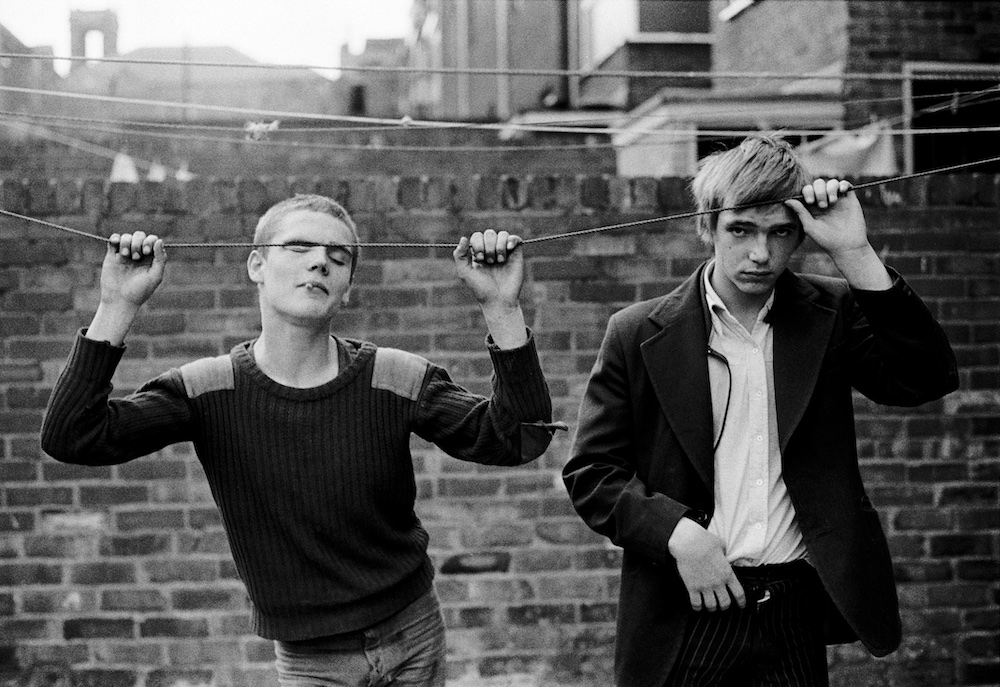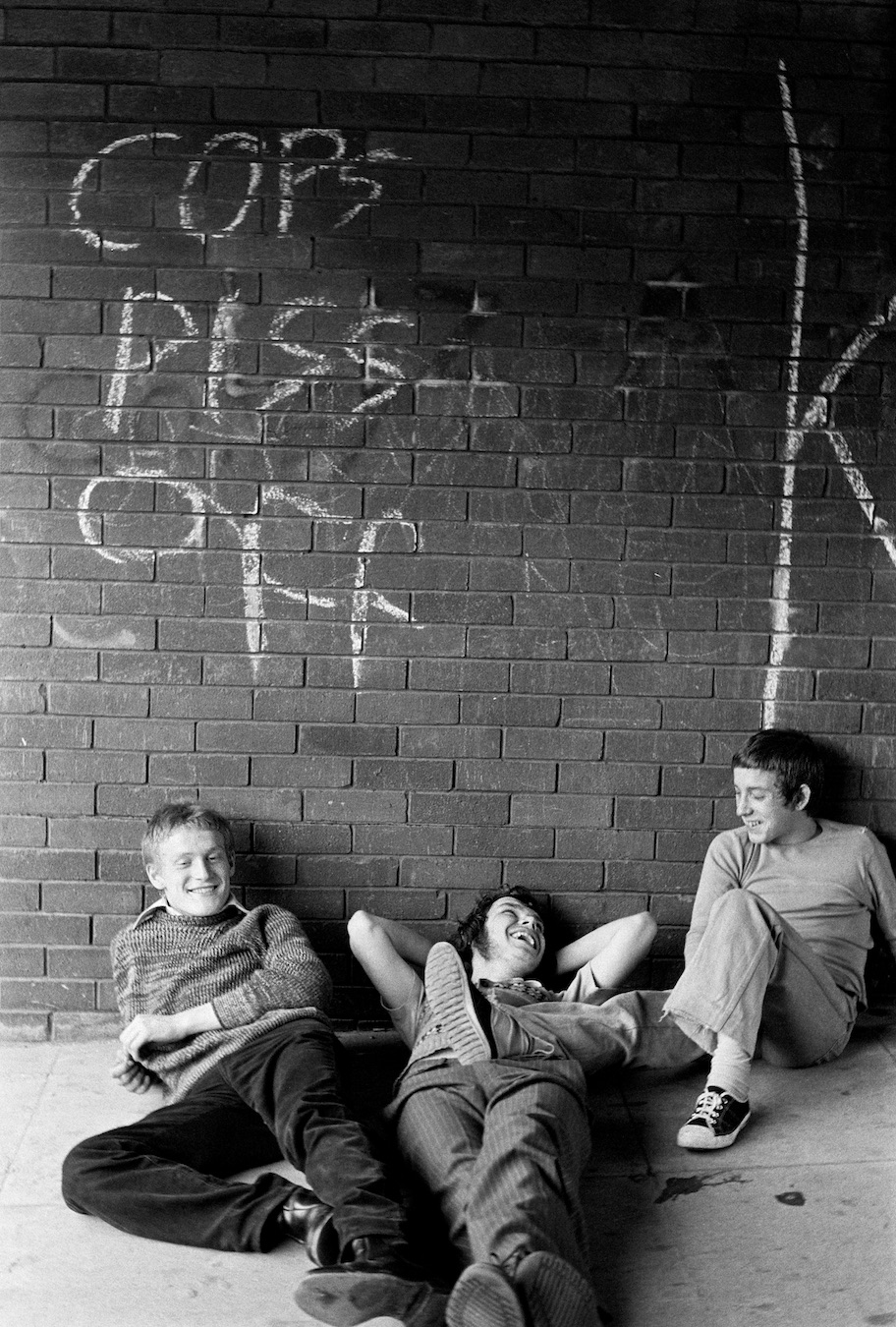Cops Piss Off © Tish Murtha.
Tish Murtha was a firm believer that photography could be a tool for social change – here, her daughter Ella reflects on the importance and continued relevance of her work
Born in 1956 in South Shields, a coastal town in north-east England, Tish Murtha studied under David Hurn at the prestigious School of Documentary Photography, University of Wales. From 1979, she documented the deprivation and inequality she witnessed in Newcastle during the Thatcher years, culminating in her key body of work, Youth Unemployment.
The images were exhibited at Newcastle’s Side Gallery in 1981, but Murtha was unable to fulfil her dream of publishing the work before sadly passing away on 13 March 2013, the day before her 57th birthday. Since then, her daughter Ella has been managing the Tish Murtha Archive, and almost 40 years after the first image was made, Youth Unemployment was published by Bluecoat Press in 2017.
How do you remember your mother, as a photographer?
My mam was motivated by the desire to document real people with humanity and compassion. I grew up with her pictures as our wallpaper and was often in the darkroom with her as a child. She was in her element there, listening to her favourite music; she loved the whole process, and I’m happy that I got to share that with her.
She was fearless but also incredibly sensitive. Her approach was informal, generating an understanding of what she was doing by giving prints to the people she photographed. She was calm and was able to sit back and observe her surroundings. She learned how to read a situation from an early age – she had an education in people long before she picked up a camera.
How important was this series to your mother?
Youth Unemployment was extremely personal to my mam. The images come from a place of anger and love: anger at the situation, and love for the people. The work was a desperate plea for help for a generation of kids who were being abandoned to a lifetime of unemployment, or being nothing more than part of a cheap labour market. She shows us the bitter reality of surviving on subsistence benefits, but also the strength, and how people come together when times are hard.
What is the relevance of these photographs today?
We’re living through incredibly divided times where working-class people have been manipulated, just like the class warfare my mam warned about. She foresaw that the repercussions would be felt for years and we seem to be feeling those effects now – we are at crisis point.
Is there a photograph that was particularly meaningful to her?
Cops Piss Off [above]: the lad on the left is Tish’s youngest brother Carl, with his friends Robo and Tony, and the message on the wall is symbolic of their alienation. There was a void between them and their parents’ generation, who treated them like skivers, nagging them to get jobs when there just weren’t any.


